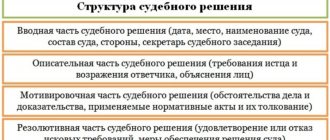When contacting a criminal lawyer, it is preferable to have an experienced specialist in a certain category of crimes, which would include Art. 315 of the Criminal Code of the Russian Federation Failure to comply with a court verdict, court decision or other judicial act. And this is true, you have already taken the necessary step. You have visited the website of a criminal lawyer competent in matters of defense under Art. 315 of the Criminal Code of the Russian Federation. It is likely that you or your relative need protection under Art. 315 of the Criminal Code of the Russian Federation Failure to comply with a court decision means a criminal case has either been initiated, or the issue is being resolved. A lawyer provided by the investigator in accordance with Art. 51 of the Code of Criminal Procedure of the Russian Federation worries you, you are looking for a replacement for him, this is not surprising, and you are doing absolutely the right thing. Follow your decision right now, and dial the phone number listed on the website, talk to a lawyer under Art. 315 of the Criminal Code of the Russian Federation Failure to comply with a court decision may be the best thing you can do to protect you or your loved one from criminal prosecution.
What threatens under Art. 315 of the Criminal Code of the Russian Federation for failure to comply with a court decision
A special part of the criminal code is formulated by Art. 315 of the Criminal Code of the Russian Federation as follows:
Article 315. Failure to comply with a court sentence, court decision or other judicial act
Malicious failure by a representative of government, a civil servant, a municipal employee, as well as an employee of a state or municipal institution, commercial or other organization of a court sentence, court decision or other judicial act that has entered into legal force, as well as obstruction of their execution -
shall be punishable by a fine in the amount of up to two hundred thousand rubles, or in the amount of the wages or other income of the convicted person for a period of up to eighteen months, or by deprivation of the right to hold certain positions or engage in certain activities for a term of up to five years, or by compulsory labor for a term of up to four hundred eighty hours, or forced labor for a term of up to two years, or arrest for a term of up to six months, or imprisonment for a term of up to two years.
This crime provides for a fairly severe punishment, but following the recommendations of a lawyer and acting correctly, the punishment may not be so severe.
In some cases, there is a prospect of reclassifying the act to another, lighter offense or even decriminalizing the act. But such opportunities, if they can be found, are most effectively used before the initiation of a case, at the stage of verification in accordance with Art. Art. 144-145 Code of Criminal Procedure of the Russian Federation. Termination of an already initiated criminal case is an extremely rare case. Despite this, at any stage, the lawyer uses all possible legal methods of defense. The goal of a criminal defense lawyer is to achieve the best position for his client, a mitigation of fate, and a recognition of not guilty. It should be noted that this is not always possible, but the desire for a favorable outcome should take place in any case. CRIMINAL LAWYER call now: ☎ 8 (495) 532-75-40
A very useful and timely decision was made by the Judicial Collegium for Civil Cases of the Supreme Court of the Russian Federation, when it overturned the verdict of its colleagues on a citizen’s complaint about the inaction of a bailiff. Local courts rejected a man's claim against the Federal Bailiff Service when he complained about the bailiff's reluctance to collect money from the debtor.
As a result, the debtor managed to withdraw all the cash from his accounts, and the bailiff service returned the unexecuted court decision to the citizen, declared the collection case unenforceable, simply closed the proceedings and handed over the folder to the archives. The Supreme Court sided with the citizen and explained who and how is responsible for the inaction of the bailiffs. The importance of such an explanation from the most qualified judges in the country is that the situation with debt collection by bailiffs is often very problematic. And everyone who has encountered a penalty understands perfectly well: a victory in court is not yet a victory. Due to the bailiff’s reluctance to fulfill his official duties, a citizen’s win in court may remain on paper. Which, in fact, is what happened in our case. The story began with a citizen bringing a claim to the court against the bailiff service. In court, the plaintiff said that he had a dispute with a plastic window company that did not fulfill its contractual obligations and the client suffered. The court awarded the victim compensation for windows that were not supplied but paid for. By court decision, the company must return more than a million rubles. At the time of registration of enforcement proceedings, there was enough money in the window company’s account to more than pay off the debt. Plus, the businessmen also had other expensive property. But due to the fact that the bailiff was executing, or rather pretending that he was slowly executing the court decision to collect the debt, the money and property of the businessmen disappeared. The bailiff returned the unfulfilled proceedings to the citizen who won the trial, and wrote off the case itself to the archives due to the fact that the debtor did not have the funds. It was then that the person who had already suffered twice - from businessmen and from the bailiff service - went to court with a claim against the service. But he was unlucky. The district and city courts unanimously rejected his claim. The persistent plaintiff then asked the Supreme Court to review the denials. The bailiff service, having learned about this, also appealed to the Supreme Court with a request to leave the decisions of the local courts that refused the person unchanged. The judicial panel for civil cases requested the case, studied it and stated that the citizen was rightly indignant, and the decisions of his colleagues were illegal. This is what the materials of the case, which the Supreme Court studied, showed. The court decision that the company owes the citizen a million rubles was made and entered into legal force back in 2015. From the case materials it is clear that in August 2015 the bailiff wrote a decree by which he introduced a “ban on registration actions in relation to cars registered with the defendant” and lists five cars, three of which are expensive foreign cars. The bailiff's order was dated November 2015 to collect a million rubles from the company's bank account, which contained money that fully covered the debt. And then there was silence, which lasted for two years. In May 2021, the decision of the district court came into force, declaring “illegal the inaction of the bailiff, expressed in the long-term non-execution of the court’s decision on collection.” In December 2021, the bailiff service wrote a decree that the enforcement proceedings were completed, and the writ of execution was returned to the victim. This resolution states that “the debtor does not have any property that can be seized, and all measures taken to find his property were unsuccessful.” That’s when the person, outraged by the inaction of the performers, went to court with a claim against the bailiff service. But the district court refused the citizen, writing in the decision that, in its opinion, “there is no cause-and-effect relationship between the defendant’s inaction and the losses claimed by the citizen for compensation.” The appeal agreed with this refusal. But the Supreme Court of the Russian Federation is not. Here are the Supreme Court's arguments. The main law when considering this case is the Law “On Enforcement Proceedings”. Article 36 of this law states that “the requirements contained in the executive document must be fulfilled by the bailiff within 2 months from the date of initiation of enforcement proceedings.” Article 119 of the same Law “On Enforcement Proceedings” states that “interested persons have the right to file a claim in court for compensation for losses caused to them as a result of enforcement actions.” The same is said in the law on bailiffs. The Supreme Court also recalled its plenum (No. 50 of November 17, 2015), which discussed enforcement proceedings. If during the enforcement proceedings the bailiff did not take the necessary actions to take away funds or property from the debtor that later disappeared, then the plaintiff cannot be required to prove that his debtor does not have property that can be recovered. At the same time, the absence of “real performance in itself is not a basis for imposing on the state the obligation to compensate the amount not received from the debtor. The fact is that the responsibility of the state in the execution of judicial acts issued against private individuals is limited to the organization of forced execution of these acts and does not imply a mandatory positive result if it is “conditioned by objective circumstances depending on the debtor.” In our case, the basis of the claim was not the fact of non-fulfillment of the court decision, but non-fulfillment due to the inaction of the bailiff. The bailiff issued the orders on time, but no evidence was presented to the court that the bailiff sent them to the bank. The defendant did not explain why the bailiff did not act. There is no answer in the case to the question of why, if the debtor has a fleet of vehicles, the court decision was not implemented. The whole dispute will be reviewed again. Russian newspaper - Federal issue No. 147 (7905)
Lawyer under Art. 315 of the Criminal Code of the Russian Federation Failure to comply with a court verdict, court decision or other judicial act
Lawyer under Art. 315 of the Criminal Code of the Russian Federation Failure to comply with a court decision is extremely necessary for those against whom criminal prosecution has been initiated under such an article. Protection under Art. 315 of the Criminal Code of the Russian Federation is based on the use of deep practical experience of a lawyer. A lawyer, not only guided by theory, but also relying on many years of practice, will develop the most correct position to protect his client. One call to a lawyer can change the entire current situation in the opposite direction. Based on this, by seeking legal assistance in a timely manner, you retain the opportunity to use the most effective methods of defense in a criminal case than if you applied at a later stage. Call a lawyer immediately after you understand the need to seek protection in a criminal case. Our phone number is listed on the website. Contact a criminal lawyer now!
Payments for violation of the right to execute a judicial act
Here we are not talking about holding the debtor (or violator) accountable, but about compensation for damages for violation of the right itself, although these materials are considered in accordance with the CAS of the Russian Federation.
As a rule, the defendants are federal and local authorities that ignored the judicial act or delayed its implementation. The lion's share of such cases is related to the failure to provide living space when the plaintiff rightfully claims it. The basis for the payment of money is the provisions of Law No. 68-FZ on compensation for violation of the right to legal proceedings.
For example, the court decided to provide housing to a former orphanage pupil. However, officials, for various reasons, did not comply with the judicial act and ignored the bailiff's order. Then the plaintiff again appealed to the court with a demand to pay him compensation for failure to comply with the decision. As a result, the judge recovered more than 90 thousand rubles from the Subject of the Russian Federation in favor of the citizen. (Decision of the Saratov Regional Court in case No. 3a-18/2018 dated January 30, 2018).
Deadlines for execution
Parts 11 and 12 of Art. are devoted to the calculation of deadlines. 30 FZ-229, which provides that the bailiff, upon the initial receipt of the enforcement document in the FSSP, must provide the debtor with a period for voluntary execution of the court decision. Equal to 5 days. The calculation of the period begins from the day of receipt of a copy of the decision to initiate enforcement proceedings.
This point is the most controversial and causes complaints and lawsuits. This is due to a change in the procedure for notifying the debtor. Due to changes in the law, a notice is considered received if sent to the debtor's registered address. No proof of personal service or signature of the debtor is required indicating that the bailiff's order has been received. In this regard, decisions to impose a fine are issued before the Russian Post manages to deliver the letter to the addressee, although the law provides that the bailiff does not have the right to impose a fine before the expiration of the deadline. Having indicated in the resolution a period of 5 days, he must take measures to ensure that the debtor receives notification. The notice can be transmitted not only by post, but also via SMS notification or notification to the debtor’s personal account on the State Services portal.
You need to know this: Is it possible to agree with the bailiff to repay the debt in installments - a sample application for installments
Bindingness of court decisions for legal entities
Any court decision (decree, ruling) is binding for everyone - both for the participants in the process who are directly affected by it, and for other citizens and organizations that may have to face this decision.
As a rule, court decisions that must be executed by legal entities are made in the framework of civil proceedings or arbitration. At the same time, the “lion’s share” of judicial acts not executed by organizations are final decisions that directly affect legal entities that are defendants or third parties in the process. Such judicial acts can be decisions, court rulings, court orders, as well as writs of execution issued by courts, including decisions of arbitration courts.
Execution of a judicial act is its complete, correct and timely execution. Anything that does not meet these criteria is considered a failure. For example, it is impossible to comply with court orders only in some desirable part, and ignore the rest. Will result in punishment and missing the deadline. Under certain circumstances, liability of the Code of Administrative Offenses of the Russian Federation, the Arbitration Procedure Code or the Criminal Code of the Russian Federation may arise in case of violation of the procedure for the execution of a judicial act, as well as in the creation of obstacles to its execution.
The procedure for bringing to administrative responsibility
There are no strictly approved regulations that would regulate the voluntary execution of orders contained in the text of a court decision. As a rule, legal liability for persons for failure to comply with a court decision occurs in the period after the fact of their failure to comply with the instructions contained in enforcement proceedings is established. This happens in the following order:
- The bailiff receives a writ of execution from the court or from the claimant, on the basis of which enforcement proceedings are initiated.
- If the debtor fails to comply with the instructions of the enforcement documents, the bailiff sets a new deadline for the execution of the instructions for this person and issues a resolution to collect the enforcement fee. Thus, non-execution or improper execution of a court decision entails the imposition of property liability on the violator.
- If the debtor fails to comply with the requirements of the writ of execution within the new period without good reason, the bailiff draws up a protocol on the administrative offense.
In addition to administrative liability, violation of the norms of enforcement proceedings provides for criminal liability or other types of liability regulated by current industry legislation. For example, Article 332 of the Arbitration Procedure Code of the Russian Federation establishes punishment for citizens, legal entities and officials, state authorities and local self-government for an unfulfilled decision of an arbitration court in the form of a judicial fine.
Non-execution of court decisions: main provisions
Judicial decisions are one of the forms of judicial decisions, which, when entering into legal force:
- is mandatory for all citizens and organizations, state authorities and local governments, public associations;
- is subject to unconditional execution throughout the Russian Federation.
Failure to comply with a judicial act manifests itself in certain forms:
- failure to take actions directly aimed at implementing the decision, for example, ignoring demands to pay compensation to the victim;
- carrying out actions aimed at preventing the implementation of the provisions of a judicial act, for example, prohibiting the head of the human resources department from reinstating an employee who was fired illegally.
The court decision must be executed:
- immediately as soon as the court decision has entered into legal force;
- immediately after the decision is made, if it concerns:
- payment of wages to the employee for 3 months;
- alimony payments;
- reinstatement to work;
- inclusion of a citizen of the Russian Federation in the list of voters or referendum participants.
In cases where voluntary execution of a court decision does not occur, compulsory enforcement systems are used. A person may be held accountable for violating the provisions of the law on enforcement proceedings.
Responsibility in the arbitration process
In this case, the severity of the violation and the amount of punishment are determined by the arbitration court itself, and prosecution is regulated by a special norm - Art. 332 Arbitration Procedure Code of the Russian Federation.
The main sanction is a court fine. It is imposed in the manner provided for in Art. 119-120 APC of the Russian Federation. Individuals (citizens) may be held liable in the amount of up to 2,500 rubles. If an individual fails to comply with a court decision while being an official, the fine can reach 5,000 rubles. The imposition of a fine does not eliminate the need to comply with the decision of the arbitration court.
Liability for violation
Liability for failure to comply with a court decision is provided for in various codes, laws and individual regulations.
The main ones are procedural codes (Civil Procedure Code, APC, Criminal Procedure Code, CAS, Code of Administrative Offences), the Law on Enforcement Proceedings, as well as laws establishing sanctions - the Criminal Code, Code of Administrative Offenses, and the Code of Administrative Procedures. Punishments range widely, from warnings and fines to disqualification and imprisonment. Prosecution does not exempt from execution of a court decision. The main bodies monitoring the execution of court decisions are the FSSP (bailiffs), the FSIN (criminal cases) and the prosecutor's office (in terms of decisions made on applications from the prosecutor's office, on cases and decisions of a public nature and some others).



